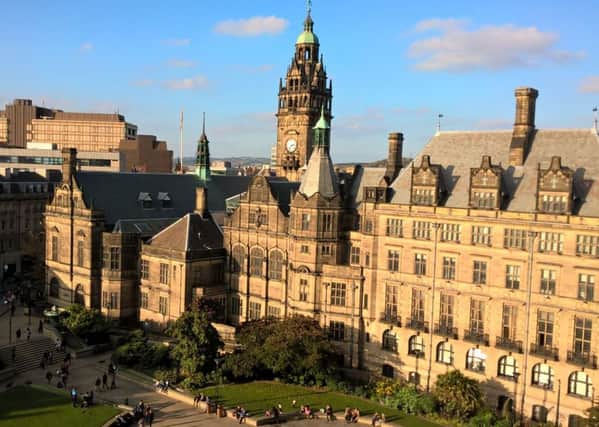Yorkshire councils' warning over financial peril


Ministers want to end the main Government support for councils by 2020 but the survey shows 60 per cent of Yorkshire authorities do not believe that target is “realistic”.
Government funding has historically formed a bigger part of Yorkshire councils’ budgets because of poverty levels in the region relative to other areas.
Advertisement
Hide AdAdvertisement
Hide AdBy 2020, the Government wants councils nationwide to support themselves purely through business rates and council tax income rather than with help from Whitehall.
Bradford Council leader David Green said: “The reality is that they make these announcements without any consideration of the situation different local authorities find themselves in.
“You cannot just magic new business rates. Just getting people to invest, getting planning permission, these things can take three, four, five years.
“To do it at a rate that would compensate for the removal of the revenue support grant would need 10 or 20 years notice. We have been given three or four.
Advertisement
Hide AdAdvertisement
Hide Ad”The effect of the withdrawal of revenue support grant is that Bradford Council in 2020 will be half the size in financial terms it was in 2010.”
Many council leaders in the region fear the Government’s plans will increase the gap with wealthier areas which boast stronger economies generating much higher levels of business rates.
The survey, by the Local Government Information Unit (LGiU) and Municipal Journal, found every eligible Yorkshire authority is considering using new powers to raise tax bills by two per cent to pay for elderly care but 83 per cent also felt that it would not cover the rising costs they face.
Many Yorkshire councils already pay their own staff the living wage but expect to be hit by additional costs this year when care providers working under council contracts ask for help to pay their staff the new national living wage.
Advertisement
Hide AdAdvertisement
Hide AdRotherham Council leader Chris Read said: “I think we will go with the adult social care precept which will raise something like £1.7 million but the cost of implementing the national living wage (in social care) will be around £3.3 million so it only gets us half way there.
“A feature in Rotherham is the high growth we are getting in the number of 85s and older so we have a particular demographic issue.”
Ministers have said town halls will have more control over their own affairs by ending their reliance on Government support.
But only 30 per cent of those surveyed thought the Government’s plans to hand more powers and money to local control are “meaningful”.
Advertisement
Hide AdAdvertisement
Hide AdAuthorities across Yorkshire have set out plans for major budget cuts in response to reductions in Government funding and almost two-thirds of councils expect the public to notice the impact on services.
All councils said they would use reserves to help balance the books in the year ahead and increase their charges for services although for most authorities this will represent less than 10 per cent of their budgets.
Jonathan Carr-West, LGiU chief executive, said: “Local government finance is a mess. Our research shows that right now councils are cobbling together their finances by using reserves and increasing charging wherever they can.
“The Government has shown a genuine and radical commitment to changing the way Britain is governed. But the path to devolution has been encumbered by decades of central government ducking crucial questions about how local government is financed.
Advertisement
Hide AdAdvertisement
Hide Ad“The system we have now is one which no one would design. Central government and local authorities both want to see a sustainable independent funding model. But until we answer fundamental questions about how to make this work, devolution will be a process rather than a revolution.”